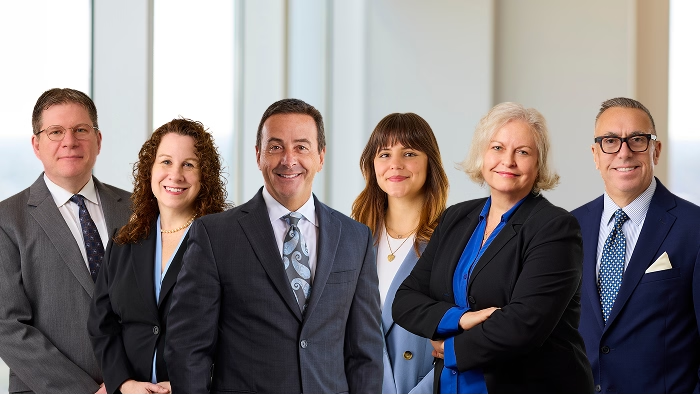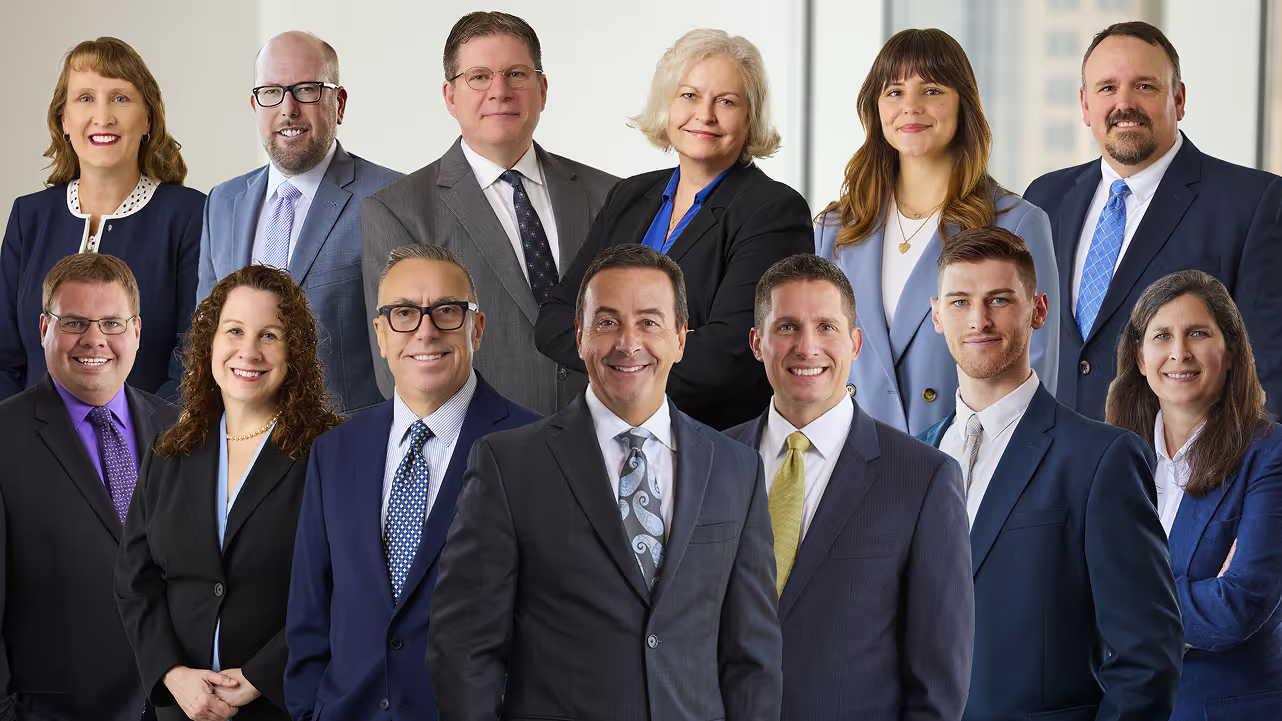Types of Municipal Liability Cases We Handle
Our skilled legal team has successfully represented clients in various municipal liability matters, including the following:
- Dangerous roadway claims: Injuries caused by poorly designed, constructed, or maintained streets and highways.
- Sidewalk and crosswalk accidents: Falls and injuries resulting from cracked pavements, inadequate lighting, or improper signage.
- Traffic signal failures: Crashes caused by malfunctioning traffic lights or missing signs.
- Public transportation incidents: Injuries on IndyGo buses, school buses, or other government-operated vehicles.
- Government building accidents: Falls and other injuries on public property like courthouses, libraries, or government offices.
- Recreational facility injuries: Accidents at public parks, pools, playgrounds, and sports facilities.
- Law enforcement misconduct: Excessive force, false arrest, or improper detention cases.
- School district negligence: Injuries to students due to inadequate supervision or unsafe conditions.
- Municipal vehicle accidents: Collisions involving police cars, fire trucks, maintenance vehicles, or other government fleet vehicles.
- Road construction hazards: Injuries from improperly marked or managed public works projects.
Each of these types of cases involves different government entities and specific legal standards that must be met to establish liability.
Understanding Municipal Immunity in Indiana
The Indiana Tort Claims Act regulates lawsuits against government entities, creating a framework that provides partial immunity while permitting claims in certain situations.
When Governments Can Be Held Liable
Despite immunity protections, government entities can be held accountable for negligence under many circumstances, including:
- Failure to maintain safe roadways and public properties
- Negligent operation of government vehicles
- Improper performance of discretionary functions
- Unsafe conditions on public property
- Negligent conduct by government employees acting within the scope of employment
- Civil rights violations by government officials
The key to winning these cases is to identify where exceptions to immunity apply and gather evidence that clearly establishes the government's legal duty and failure to meet that duty.
Damage Caps and Limitations
Indiana law places the following limits on recovery amounts in government liability cases:
- $700,000 per individual claim
- $5 million aggregate cap for all claims arising from a single occurrence
Because of these caps, it’s crucial to properly document all losses and present the strongest possible case to maximize your recovery within the applicable limitations.
Critical Filing Deadlines in Government Liability Cases
Municipal liability cases have much shorter deadlines than standard personal injury claims. Here’s a closer look:
- For claims against cities, counties, and local government units, you must file a formal tort claim notice within 180 days of the incident.
- For claims against state agencies, you must file notice within 270 days.
- Notices must include specific information about the incident, injuries, and parties involved. They must also be delivered to the correct government officials to be valid.
Missing these deadlines or failing to include the required information may bar you from seeking compensation permanently. Our attorneys can ensure that all notices are properly prepared and filed on time to protect your rights.
The Municipal Liability Claims Process
Successfully pursuing an injury claim against a government entity involves a multi-stage process that comprises the following steps:
Initial Investigation
Our team will promptly investigate the incident, gathering critical evidence that might otherwise disappear quickly, such as:
- Photographs of the hazardous condition
- Memory-dependent witness statements
- Government maintenance records
- Internal communications about known dangers
- Surveillance footage that might be overwritten
- Weather data and road conditions
- Medical documentation linking your injuries to the incident
This evidence will both fulfill the legally mandated notice requirements and form the foundation of any subsequent litigation.
Tort Claim Notice Preparation and Filing
Next, our lawyers will prepare a comprehensive notice that satisfies all legal requirements, including:
- A detailed description of the incident
- The specific location and time
- The nature of the injuries and losses claimed
- The names of any involved parties
- Miscellaneous supporting documentation
- Proper legal basis for the claim
We’ll file this notice with the appropriate government agency within the applicable statutory deadline for your case.
Government Investigation
After receiving notice, the government will have a predetermined period in which to investigate the claim, typically 90 days for local government entities and 180 days for state agencies. During this time, government officials might request additional information, offer to settle, or deny your claim.
Litigation (If Necessary)
If the government denies the claim or fails to respond, we’ll promptly file a formal lawsuit. This requires:
- Drafting a legally sound complaint that addresses government immunity issues
- Navigating specialized court procedures for government defendants
- Conducting thorough discovery to uncover evidence of negligence
- Working with subject matter experts to establish standard-of-care violations
- Preparing compelling arguments that overcome immunity defenses
Throughout this process, we’ll remain open to fair settlement offers while preparing vigorously for trial if needed.
Common Challenges in Municipal Liability Cases
Government liability cases present unique obstacles that require particular legal knowledge. Here are some key points to be aware of:
Discretionary Function Immunity
Governments often claim immunity by arguing that the harmful action involved "discretionary functions". We can counter this defense by demonstrating that:
- The action violated mandatory safety standards or policies.
- Key decisions were operational rather than planning-level.
- Similar conditions were handled differently in comparable situations.
- The danger created was foreseeable and preventable.
Prior Notice Requirements
To establish liability, we must prove that the government knew or should have known about the dangerous condition. We can accomplish this by:
- Obtaining maintenance and inspection records
- Citing prior complaints about the same hazard
- Uncovering evidence of previous similar incidents
- Identifying violations of the government's own safety standards
- Showing that the condition existed long enough that reasonable inspection would have revealed it
Multiple Government Entities
Many cases involve overlapping jurisdictions, duties, and liabilities, such as:
- State highways running through city boundaries
- County facilities located within municipalities
- Contracted services performed by private companies for government agencies
- Shared maintenance responsibilities between different departments
Our team will pinpoint all potentially responsible parties and pursue claims against each appropriate entity to maximize your recovery opportunities.
Compensation Available in Municipal Liability Cases
Despite the damage caps Indiana imposes, substantial compensation is available in successful government liability cases. The damages you stand to receive can be used to offset losses like:
- Medical expenses: Costs of all necessary treatment and rehabilitation for your injuries.
- Lost wages: Income lost during recovery, as well as any reduction in future earning capacity.
- Permanent disability: The impacts of lasting physical limitations.
- Property damage: Repair or replacement costs for damaged vehicles, electronics, and other personal property.
- Out-of-pocket expenses: Costs associated with transportation to medical appointments, home modifications, or other injury-related expenses.
- Pain and suffering: Damages for severe physical pain and ongoing discomfort (within applicable caps).
- Emotional distress: Recognition of the psychological trauma caused by the incident.
Our skilled attorneys will work to document every relevant loss — including those that don’t have dollar values attached — to ensure that you receive the maximum available compensation within statutory limits.

Act Quickly After Government Negligence Harms You
Time is limited in municipal liability cases. Contact CohenMalad, LLP, right away to assert your rights and begin the process of issuing the required notice.


%20(1).avif)




.avif)
.avif)






